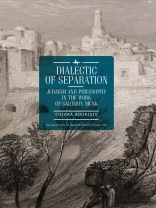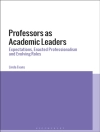Dialectic of Separation analyzes the complex relationship between Judaism and philosophy in the thought of the nineteenth-century German–Jewish orientalist and philosopher Salomon Munk. Drawing on both published and on unpublished sources, appearing here for the first time, it offers the first-ever comprehensive reconstruction of Salomon Munk’s life and work. Munk, who emigrated from his native Glogau to Paris to pursue his studies, was to exert a major influence on the development of Islamic and Jewish studies in both France and Germany, giving a vital impetus to the debate over the nature of Jewish philosophy at a time when medieval Jewish philosophers (such as Maimonides) and their Arabic and Islamic sources were completely neglected in philosophical historiography.
Tabella dei contenuti
Acknowledgments Introduction 1. Salomon Munk (1803–1867): His Life and Work 1.1. From Glogau to Berlin, 1803–1824: Munk, Philology, and the Science of Judaism 1.2. From Berlin to Paris, 1824–1828: Munk and the Development of Oriental Studies in France 1.3. A Journey to the Orient: Munk and the Damascus Affair 1.4. Back in Paris, 1841–1846: Franck’s Historical-Critical Dictionary of Philosophy 1.5. Munk’s Blindness 1.6. “A simple grammar course”: Munk at the Collège de France 1.7. Munk in the Eyes of His Contemporaries: Philologist, Historian of Philosophy, and Philosopher of Religion 1.8. Munk’s Legacy 2. Salomon Munk and the Problem of Jewish Philosophy 2.1. Philosophy in Three Languages: Jewish Philosophy, Christian Thought, and Islamic Sources in Munk’s Mélanges de philosophie juive et arabe 2.2. Judaism and Neoplatonism in the Mekor Hayyim: Munk’s Analysis of Ibn Gabirol’s Attempt to Reconcile Philosophy and Jewish Theology 2.3. Judaism and Philosophy in Munk’s Esquisse historique de la philosophie chez les juifs 2.4. Before Munk’s Guide des égarés: Previous Translations of Maimonides’s Guide of the Perplexed 2.5. An Impossible Synthesis: Munk’s Translation of the Guide of the Perplexed 2.6. A Critique of Speculative Philosophy: Munk, the Science of Judaism, and Hegel’s History of Philosophy 2.7. Islamici nihil a me alienum puto: Munk versus the German Orientalists and Historians of Philosophy 2.8. Munk’s Review of Heinrich Ritter’s History of Philosophy 2.9. Munk’s Seminal Contribution to the History of Philosophy 3. Salomon Munk and Twentieth-Century Jewish Philosophy 3.1. Hermann Cohen’s Ethics of Maimonides and His Critique of Salomon Munk 3.2. Leo Strauss’s Interpretation of Medieval Islamic and Arabic Philosophy and the Science of Judaism 3.3. A Return to Premodern Philosophy: Leo Strauss and Julius Guttmann 3.4. Existence or Idea? Guttmann’s Critique of the Influence of Existentialist Philosophy on Strauss’s Concept of Faith 3.5. From Jewish Philosophy to Philosophy as the Essence of Judaism 4. Bibliography 5. Chronology of the Works of Salomon Munk 6. APPENDIX 1: Letters 7. APPENDIX 2: Biographical Descriptions Index
Circa l’autore
Chiara Adorisio is currently assistant professor of philosophical anthropology at Sapienza University, Rome. She researched and taught in Germany and in Israel, and, in 2011, she won the Rita Levi Montalcini Program of the Italian Ministry of Education, Universities and Research. Her publications include Leo Strauss, lettore di Hermann Cohen: dalla filosofia moderna al ritorno agli antichi (La Giuntina, 2007).












